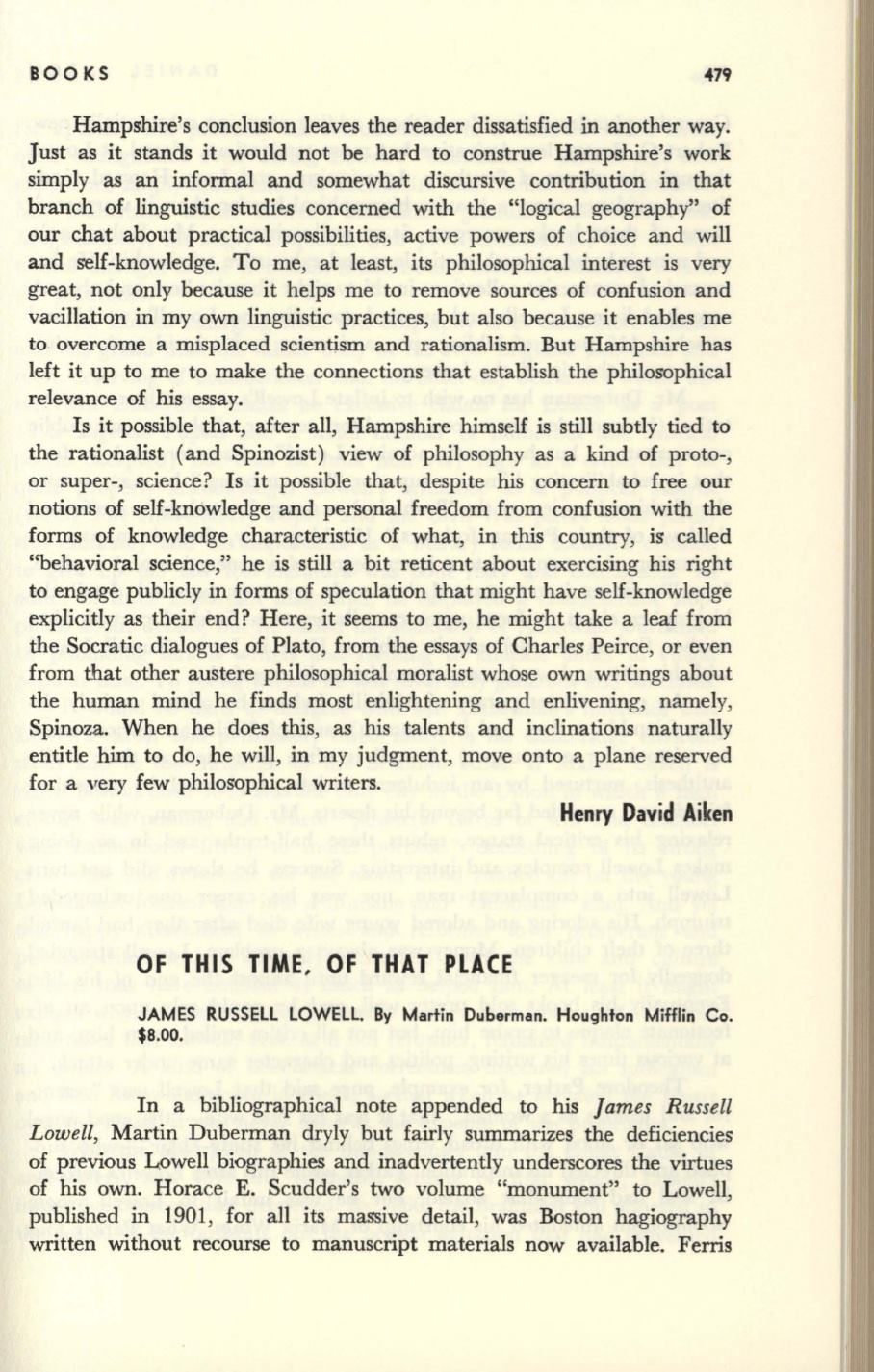
BOOKS
479
Hampshire's conclusion leaves the reader dissatisfied in another way.
Just as it stands it would not be hard to construe Hampshire's work
simply as an informal and somewhat discursive contribution in that
branch of linguistic studies concerned with the "logical geography" of
our chat about practical possibilities, active powers of choice and will
and self-knowledge. To me, at least, its philosophical interest is very
great, not only because it helps me to remove sources of confusion and
vacillation in my own linguistic practices, but also because it enables me
to overcome a misplaced scientism and rationalism. But Hampshire has
left it up to me to make the connections that establish the philosophical
relevance of his essay.
Is it possible that, after all, Hampshire himself is still subtly tied to
the rationalist (and Spinozist) view of philosophy as a kind of proto-,
or super-, science? Is it possible that, despite his concern to free our
notions of self-knowledge and personal freedom from confusion with the
forms of knowledge characteristic of what, in this country, is called
"behavioral science," he is still a bit reticent about exercising his right
to engage publicly in forms of speculation that might have self-knowledge
explicitly as their end? Here, it seems to me, he might take a leaf from
the Socratic dialogues of Plato, from the essays of Charles Peirce, or even
from that other austere philosophical moralist whose own writings about
the human mind he finds most enlightening and enlivening, namely,
Spinoza. When he does this, as his talents and inclinations naturally
entitle him to do, he wiII, in my judgment, move onto a plane reserved
for a very few philosophical writers.
Henry David Aiken
OF THIS TIME, OF THAT PLACE
JAMES RUSSELL LOWELL.
By
Martin Duberman. Houghton Mifflin Co.
$8.00.
In a bibliographical note appended to his
James Russell
Lowell,
Martin Duberman dryly but fairly summarizes the deficiencies
of previous Lowell biographies and inadvertently underscores the virtues
of his own. Horace E. Scudder's two volume "monument" to Lowell,
published in 1901, for all its massive detail, was Boston hagiography
written without recourse to manuscript materials now available. Ferris


